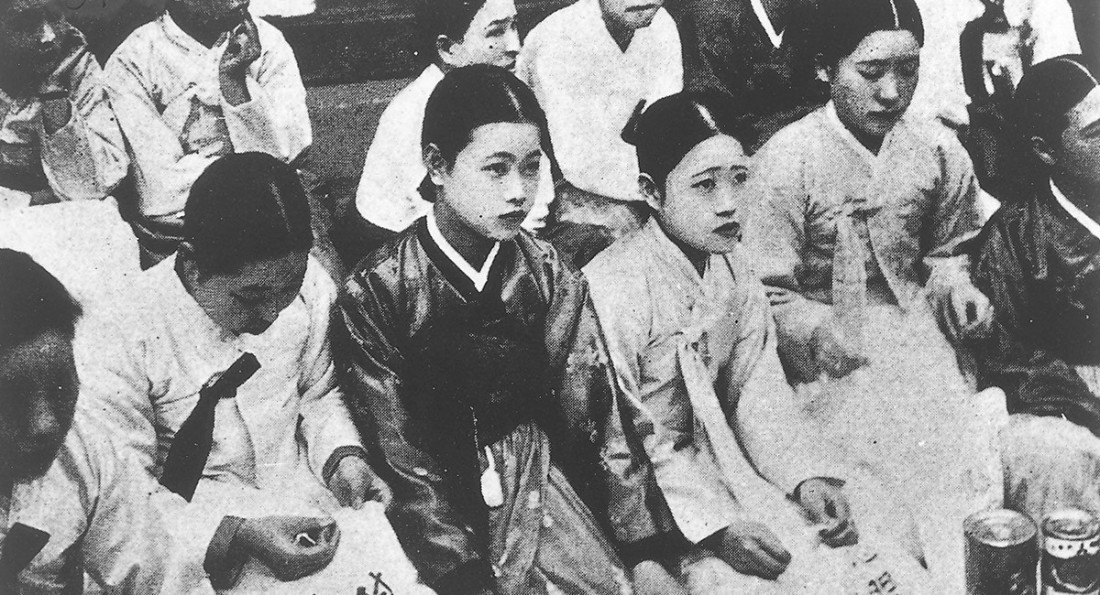Sexual violence against women in war and conflict
Avoiding future injustice begins with confronting the past
The term “comfort woman” may seem strange to many people; however it is not strange at all in East and Southeast Asia. During World War II, the Imperial Japanese forced women and girls to provide forced sexual services to the Japanese military, otherwise known as sexual slavery. It is estimated that approximately 200,000 individuals were lured into sexual slavery, including women from the Philippines, Korea, China and the Netherlands.
There have been many testimonies, inquiries and trials on the comfort women issue. Because of the efforts of brave survivors who actively seek justice, more and more people are realizing the terrifying truths behind this dark history and the trauma it produced.
The Canadian Museum for Human Rights, the Winnipeg Chinese Cultural and Community Centre and the Filipino Journal held a series of public events on “Sexual Slavery and War Comfort Women of WWll In Asia”. I attended a panel discussion that was held in Robson Hall, at the University of Manitoba on October 18, 2013. During the lecture, former comfort woman and survivor Lola Fidencia David, originally from the Philippines, shared her painful personal experiences and the psychological trauma that still follows her. All in attendance were touched by David’s bravery in breaking the silence and demanding for an official apology from the Japanese government.
“ It’s never too late to apologize. I hope there is more discussion to raise awareness amongst all Canadians on this issue. To remember history is to prevent similar things from happening again.
Filipina psychologist Cristina Rosello Gates talked about rehabilitation and treatment for these women, and what she feels from their suffering. Because of survivor’s deep trauma, the women can hardly describe their experience in words. Gates asks them to draw what they want to express as a coping mechanism. She says that many women lost their families during the war and after being systematically raped by Japanese soldiers, their loss of identity followed, making it extremely difficult to return to postwar society.
Today there are many campaigns and trials seeking redress, apologies and compensation, but not many focus on rehabilitation. Gates therefore hopes more people consider how to provide psychological treatment to comfort women survivors.
My hometown of Nanjing, Jiangsu, China is the location of the infamous Nanjing Massacre. In a period of mere weeks, 300,000 people were killed by the Japanese military – one of the most brutal war crimes committed in modern history. At the Nanjing Massacre Memorial Hall, there is a section profiling comfort women in Nanjing. This display not only shows this horrible act through words and photographs, but also through interviews of survivors. These are incredibly touching and powerful.
The United States House of Representatives, European Parliament, Netherlands Lower House, South Korean National Assembly, Legislature of Taiwan and the Philippine House of Representatives all passed resolutions in 2007 stating that Japan should issue a formal apology for Imperial Japan’s treatment of comfort women during the Second World War.
It’s never too late to apologize. I hope there is more discussion to raise awareness amongst all Canadians on this issue. To remember history is to prevent similar things from happening again.
Yijie (Jennifer) Chen is a recent graduate with an M.Sc. in Kinesiology at the University of Manitoba. She is originally from Nanjing, China.
Published in Volume 68, Number 11 of The Uniter (November 13, 2013)







